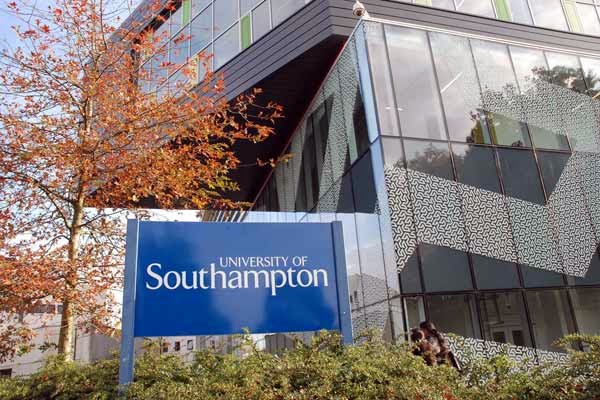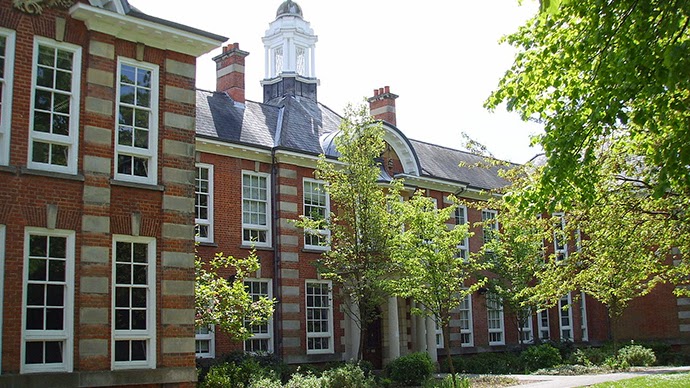After the decision of Southampton University’s Administration to ban a conference on Israel and International Law, admittedly a subject which Israel’s leaders are particularly sensitive to, legal action in the form of a judicial review is expected next week. However, as someone who has mounted a (successful) judicial review in the past, people have to be aware that success is by no means guaranteed.
I’m slightly surprised that they didn’t go for an injunction but success in what is actually an application for leave to bring an action will depend on whether the university administration acted illegally, beyond its powers ‘ultra vires’ or the appellants will have to demonstrate what is called Wednesbury unreasonableness, i.e. no reasonable administration could have taken this decision. These are high but not insurmountable hurdles. If the appellants succeed, the Judge will order the continuance of the status quo i.e. that the conference continues, however in practice this will mean that the Judicial Review has succeeded given the conference is a couple of weeks away.
Court hearing expected next week in challenge to UK university’s ban on Israel conference
The Electronic Intifada has learned details of the court challenge filed in
London on Thursday against the University of Southampton’s
decision to ban a conference related to Israel.
One of the organizers of the conference – a professor who grew up as a
refugee in Gaza – has said that the legal challenge was taken with a “very
heavy heart,” but was essential to defend freedom of speech.
 |
| Cameron’s commitment to free speech lasted less than 3 months |
On Wednesday, the University of Southampton confirmed that it
had cancelled the conference, “International Law and the
State of Israel: Legitimacy, Responsibility and Exceptionalism,”
that had been scheduled for 17-19 April.
Administrators claimed that the decision was necessary because of the high
risk of protests at the event “which could lead to incidents of public
disorder.”
 |
| Eric Pickles – the right wing slob and cabinet member who came out in favour of the ban |
High Court challenge
At a hearing in the High Court in London, expected to take place next week,
lawyers will challenge the university’s claims.
Mark McDonald, a public interest lawyer from the chambers of Michael
Mansfield QC, told The Electronic Intifada that in withdrawing permission for
the conference, the university had acted unfairly. It had used the risk of
disorder as pretext for “capitulation to activists and supporters of the State
of Israel.”
“This is blatant censorship under the guise of a specter of campus being
overrun by violent hordes, which is patently groundless,” McDonald added.
Lawyers will argue that the university presented no evidence to justify its
claims, that its decision making was inconsistent and that the mere fact of
protests does not equate to a security risk.
McDonald, who is working on the case with co-counsel Shivani Jegarajah,
pointed out that the law guarantees a right to protest and counterprotest.
The Israeli embassy in London and Israel lobby groups that had campaigned
for months for the cancellation of the conference have welcomed the university’s
decision.
Freedom of speech at stake
In an open letter to fellow faculty and students, conference co-organizer
Suleiman Sharkh warned that if left unchallenged, the university’s cancelation
of the conference “will have a direct impact on you and your freedom of
speech.”
 |
| Michael Gove – the unpopular former Education Secretary has spoken in support of the ban |
Sharkh, a professor of engineering at the university, shared the the letter
with The Electronic Intifada.
In it he explains his involvement and interest in the law conference, but
also provides some poignant personal background. Sharkh was born in the
Palestinian coastal city of Majdal Asqalan, now Ashkelon in present-day Israel.
Palestinians in the city were forcibly expelled to Gaza well after the
ceasefire that ended the 1948 war.
“In November 1948, six months after the establishment of the State of Israel
and after the wars had ended, the town was bombed and many people were killed.
Those who survived were herded towards Gaza, crawling on their hands and knees
in the thorny fields,” Sharkh writes.
The expulsion of the town’s residents to Gaza continued until 1950.
“Since then we have lived in squalid refugee camps. I walked around barefoot
in the sand soiled by open sewage. I got my first shoes when I went to school
at the age of six,” he adds.
“International law was responsible for our misery,” Sharkh explains. “It was
used to legalize the theft of our homes and it continues to be used to legalize
the ongoing oppression of my people by the State of Israel. The questions asked
by the conference are therefore questions that I have been asking all my life.
They are important questions that need to be answered.”
“However answering these questions risks exposing the true face of the State
of Israel, and risks reminding the world of the uncomfortable truth about the
crimes that were and continue to be committed against the Palestinian people,”
Sharkh states. “As a result, the pro-Israel lobby exerted huge pressure on the
university, which has resulted in the withdrawal of the permission to hold the
conference.”
Sharkh dismisses media and Israel lobby group claims that “this was going to
be an anti-Semitic conference.” He says he hoped the meeting would be a small
step “to achieve justice, freedom and equality for my people to live side by
side with Jews and all people in historic Palestine.”
Sharkh, himself a graduate of Southampton, said that studying and working at
the university “is the best thing that happened to me.”
It was therefore with a “very heavy heart” that he and other conference
organizers had to resort to taking the university to court.
Sharkh invited students and faculty to join almost eight thousand people who
have signed an online petition
calling on the University of Southampton to defend freedom of speech.
Asa Winstanley contributed reporting from London.
Full text of Suleiman Sharkh’s letter
the conference: “International Law and the State of Israel: Legitimacy,
Responsibility and Exceptionalism.” The conference was approved by the
university back in July 2014 and we followed all the procedures and
collaborated fully with the university’s administration from the start. We have
been transparent throughout about the nature and the aims of the conference.
am involved in organizing a law conference. The obvious answer is that
understanding the law is essential to engineering and it is indeed part of our
curriculum – it is a requirement of accreditation by the Engineering Council.
My own research on smart electricity grids and smart metering involves
understanding the legal issues that arise from the development of the
technology, particularly with regards to privacy of the data collected by the
smart meters and its human rights implications.
in Gaza, but my family is originally from a town called Majdal Asqalan (now
called Ashkelon by Israel). In November 1948, six months after the
establishment of the State of Israel and after the wars had ended, the town was
bombed and many people were killed. Those who survived were herded towards
Gaza, crawling on their hands and knees in the thorny fields. Since then we
have lived in squalid refugee camps. I walked around barefoot in the sand
soiled by open sewage. I got my first shoes when I went to school at the age of
six.
used to legalize the theft of our homes and it continues to be used to legalize
the ongoing oppression of my people by the State of Israel. The questions asked
by the conference are therefore questions that I have been asking all my life.
They are important questions that need to be answered.
true face of the State of Israel, and risks reminding the world of the
uncomfortable truth about the crimes that were and continue to be committed
against the Palestinian people. As a result, the pro-Israel lobby exerted huge
pressure on the university, which has resulted in the withdrawal of the
permission to hold the conference.
point of view, and why the university’s senior management’s decision is wrong
in law. This decision will have a direct impact on you and your freedom of
speech.
Studying and working at Southampton is the best thing that happened to me. It
broadened my mind, it showed me that there are alternatives to violence and
hatred, namely respectful debate and love. I care greatly about the university
and its reputation and hence the reason for deciding, with a very heavy heart,
to take legal action to reverse the decision to cancel the conference.
going to be an anti-Semitic conference. This is absolutely not true. My fellow
organizer, Professor Oren Ben-Dor is a Jew. We have many Jewish supporters. And
I am glad that many Jews immigrated to Palestine to be in a safe haven and I
welcome more Jews to live in Palestine. My main aim is to achieve justice,
freedom and equality for my people to live side by side with Jews and all
people in historic Palestine. I want it to be a safer haven for Jews, a safe
haven for all people who live there. I hope the conference will be a small step
in that direction.
spontaneous demonstrations or any violence from supporters of the conference as
suggested by my colleague the chief operating officer, Steve White. We will
conduct our protests in a very dignified manner, within the law, with full
collaboration with the police and the university. I will never accept any harm
to be done to the university and the wonderful people who work and study here,
who keep it the fantastic place of scholarship and learning that it is.
signing the online petition.

